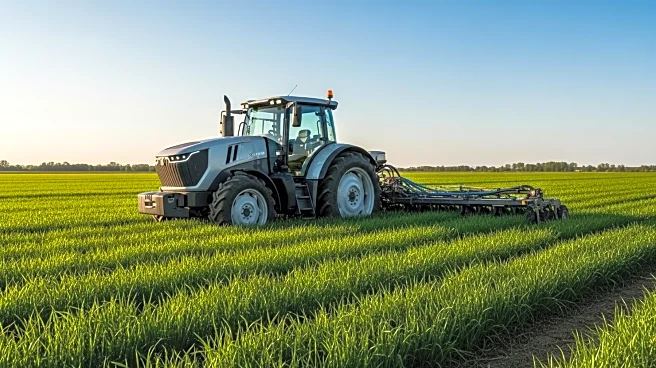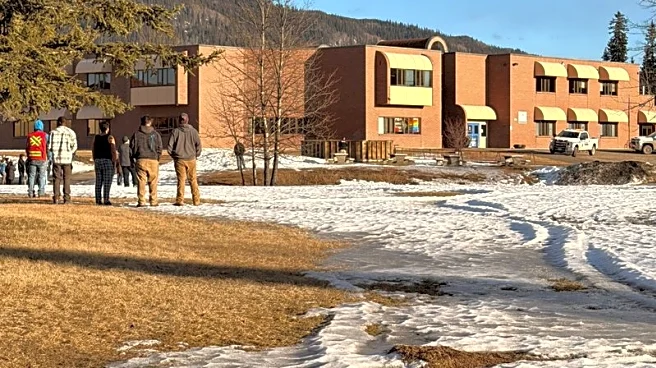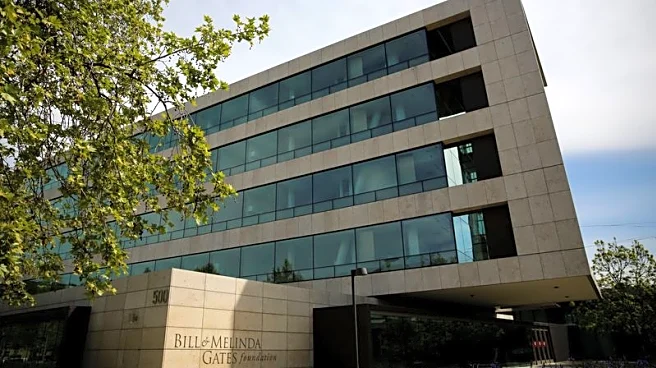What's Happening?
Agritechnica 2025, the leading trade fair for agricultural machinery, is set to highlight the latest advancements in autonomous and semi-autonomous farming technologies. Scheduled for November 9-15, 2025, in Hanover, Germany, the event will feature innovations such as intelligent field robots and retrofit kits for tractors. These technologies incorporate GPS, sensors, cameras, AI, and machine learning to perform agricultural tasks with minimal human intervention. The systems are particularly beneficial for precision sowing, weeding, fertilization, and crop protection, especially in specialty crops and organic farming where manual labor is intensive and costly. The fair will also present market-ready field robots capable of millimeter-accurate weeding and semi-autonomous combine harvesters that adjust settings based on real-time data.
Why It's Important?
The introduction of autonomous farming technologies is significant for the agricultural industry as it addresses labor constraints and enhances productivity. These systems offer substantial time savings, with field robots reducing manual weeding time by up to 80%. The ability to operate continuously, 24 hours a day, further boosts efficiency. However, the complexity of switching robots between different crops remains a challenge. The advancements showcased at Agritechnica 2025 could lead to increased adoption of smart technologies, improving sustainability and reducing dependency on manual labor. Manufacturers like Claas, John Deere, Case, and Fendt are driving these innovations, potentially transforming farming practices and economic models within the industry.
What's Next?
The event will provide insights into the future of farming, with discussions on the technical and regulatory aspects of autonomous systems. Despite the benefits, unresolved legal and safety regulations for autonomous tractors pose challenges. Additionally, insufficient broadband coverage in rural areas affects reliable connectivity with machines, hindering widespread adoption. Funding programs in German states aim to support the purchase of agricultural robots, encouraging forward-looking farms to invest in these technologies. The fair will serve as a platform for stakeholders to explore how smart technologies can enhance agricultural productivity and sustainability.
Beyond the Headlines
The shift towards autonomous farming technologies raises ethical and legal questions regarding labor displacement and machine safety. As these systems become more prevalent, there will be a need to address the impact on rural employment and ensure that safety standards are met. The integration of AI and machine learning in agriculture also prompts discussions on data privacy and the role of technology in decision-making processes. Long-term, these advancements could lead to significant shifts in agricultural practices, influencing global food production and supply chain dynamics.









